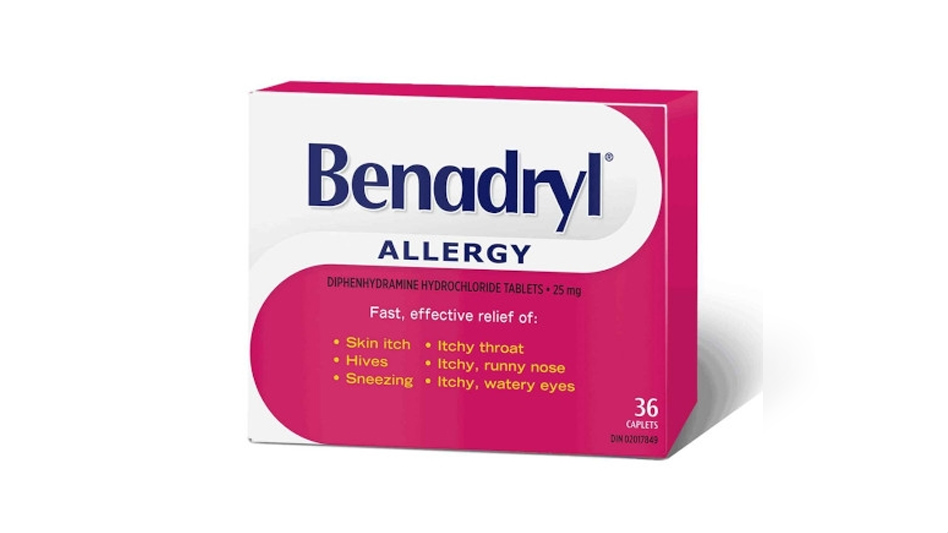Cold vs Allergies
Know the Difference
When you're experiencing symptoms such as sneezing, congestion, and itchy, watery eyes, it can be frustrating if you're not certain whether you have a cold or an allergy. Knowing the difference helps you figure out the best way to treat your symptoms. And unfortunately, many people need this information as approximately 20-25% of Canadians suffer from allergic rhinitis, a reaction triggered by airborne allergens and have some overlap with cold symptoms.¹ ²
Allergies that Trigger Cold-like Symptoms
Airborne allergens are responsible for symptoms that resemble the common cold. Airborne reactions are also grouped into two general categories—immediate and non-immediate reaction.
As the name suggests, immediate reaction for airborne allergens have instantaneous reactions such as sneezing and congestion; this group causes the cold-like symptoms. On the other hand, a non-immediate reaction is usually caused by contact dermatitis, a skin reaction which usually takes 2 days before symptoms such as rashes or hives appear.3
So, if you catch yourself constantly sneezing and dealing with a runny nose during allergy season – you’re not alone. An immediate reaction is the most common reaction and can be triggered by a range of allergens such as:4
Pollen
Mould spores
Airborne pollution
Cockroaches
Pet dander
Dust mites
Experiencing symptoms such as itchy eyes, itchy throat, and an itchy nose are the most common cold-like symptoms when exposed to these allergens. The body, naturally reacting to defend itself, is triggered by allergens to produce a chemical called histamine. This is the chemical that causes all your uncomfortable, cold-like symptoms.5
What Causes the Common Cold?
Unlike allergies which are caused by environmental and genetic factors, the common cold is caused by a virus, such as the rhinovirus.6 People contract the common cold from one another, and transmission of the virus tends to increase during early spring and late winter when people crowd together indoors.7 An infected person who sneezes or coughs can spread germ-carrying droplets in the air. When these droplets land on a healthy individual, the airborne germs make their way through the nose, mouth, or eyes and infect the person.
But unlike the rhinovirus, cold-like symptoms from allergies are not contagious. You don’t worry about ‘catching’ allergies when you stand next to someone who is sneezing because they suffer from an allergic reaction.
Cold vs Allergies Symptoms
When it comes to cold vs allergy symptoms, there are indeed some similarities, but there are tell-tale signs to differentiate between both conditions.
Some of the most common symptoms one should expect if they suffer from a respiratory allergy such as hay fever, include:7
Sneezing
Runny nose
Nasal congestion
Watery and itchy eyes
Thin, clear mucus
You are likely suffering from allergies when the onset of symptoms happens abruptly and in certain environments. For example, you only experience these symptoms when you are playing with a pet or are at the park. The timeframe of allergy symptoms also lasts as long as you are exposed to the allergen.
The common cold on the other hand, produces symptoms such as:8
Sneezing
Runny nose
Stuffiness
Fever
Thick mucus or phlegm that's greenish or yellow in colour
Body ache and pains
With a cold, the onset of symptoms happens gradually and typically lasts 1-2 weeks.8 If you suspect that you’re having a cold, it is recommended to stay home and rest, especially since you may be contagious.
How Can One Manage Their Allergy Symptoms?
Managing allergies is no easy task. But if you aren’t already aware, it is best to consult with your doctor or an allergist to help determine your allergy triggers. Knowing what you’re allergic to is important as you can work around to avoid these allergens, or minimize your exposure to them.
Here are some tips and home remedies to help manage, and bring temporary relief to your cold-like allergies:
Practice healthy lifestyle habits: for example, consider keeping pets away from personal spaces (this means they can't sleep in your bedroom with you if they are making you sneeze).
Enforce basic hygiene: it's always a good idea to wash your hands often and avoid touching your face. This way, you can ensure you’re not transferring any allergens to your nose, eyes, or mouth.
HEPA filters: installing air purifier specifically made for allergies can help keep indoor air clean and free of floating dusts.9
Home remedies: you can often find something lying around the house that may help bring relief to your allergy symptoms, such as:10
Drinking warm liquids like broth or tea
Using a warm compress over your face to relief congestion
Direct warm steam (gently) to your nose to help open your nasal passageways
Irrigate your sinuses using a salt spray
Remember, you can always turn to Benadryl® OTC medications to help relieve allergy symptoms. Benadryl® is an antihistamine medication that is available in different formats and strengths to relief your allergy symptoms. Try Extra Strength Benadryl® for maximum effect against unexpected allergies. These caplets offer fast and effective relief of skin itch, hives, sneezing, and itchy, watery eyes. You can also try Extra Strength Benadryl® Total® Allergy & Sinus for relief of allergy symptoms and sinus congestion and pain. Both of these products are offered in caplet forms and are convenient to take along, wherever you go!
The next time you experience hives, sneezing, or an itchy throat and nose, you'll be glad to know that Benadryl® is here to help! Please note that it is not recommended to take Benadryl® for prolonged use unless advised by your physician. You should always follow the directions on the label and see your doctor if your allergy symptoms persist or worsens.
References
- https://asthma.ca/wp-content/uploads/2020/06/BreatheEasy-Allergies_optimized_EN.pdf-Updated-2024.pdf
- https://acaai.org/allergies/allergic-conditions/hay-fever
- https://www.canada.ca/en/health-canada/services/airborne-allergies/causes.html
- https://myhealth.alberta.ca/health/pages/conditions.aspx?Hwid=hw34011
- https://www.aaaai.org/tools-for-the-public/conditions-library/allergies/what-makes-us-itch
- https://www.zyrtec.com/allergy-guide/understanding-allergies/symptoms/allergies-or-cold
- https://www.zyrtec.com/allergy-guide/understanding-allergies/symptoms/allergies-or-cold
- https://www.healthlinkbc.ca/illnesses-conditions/cold-and-flu/colds
- https://acaai.org/allergies/management-treatment/living-with-allergies/air-filters/
- https://www.mayoclinic.org/diseases-conditions/common-cold/in-depth/humidifiers/art-20048021
Links to other parties’ articles and websites are provided for convenience only. Kenvue is not responsible for their content.

